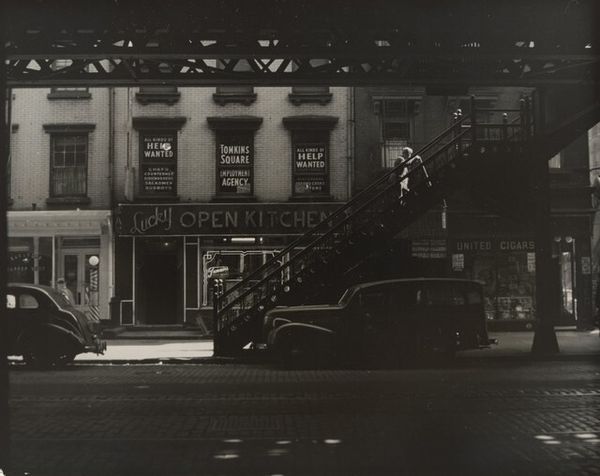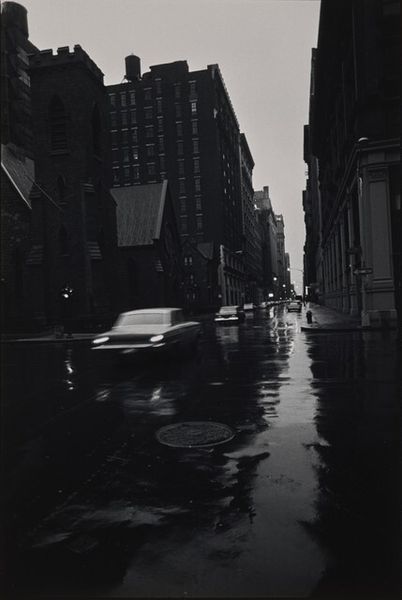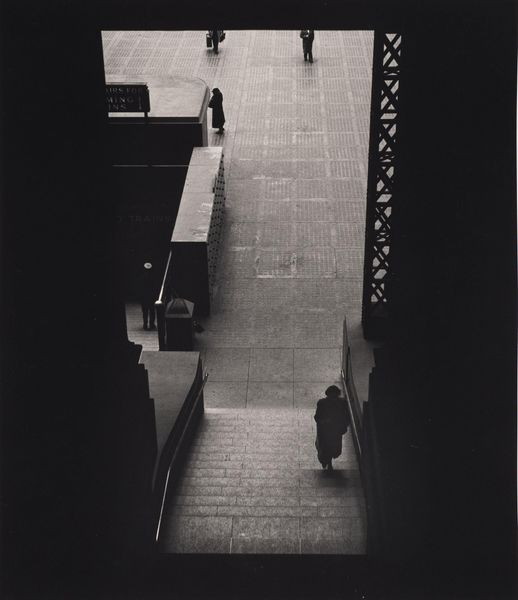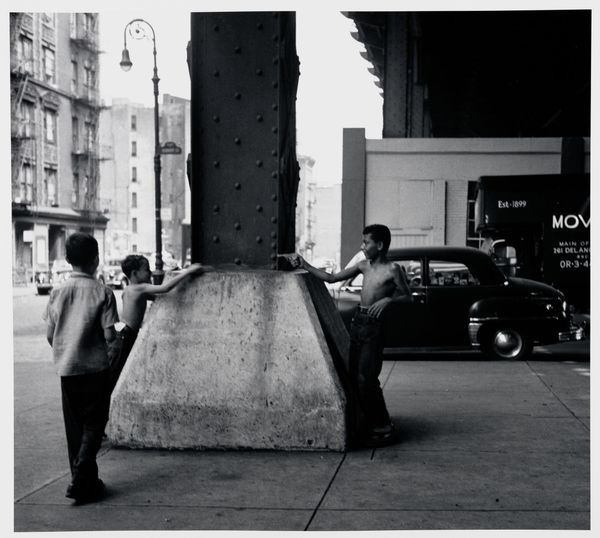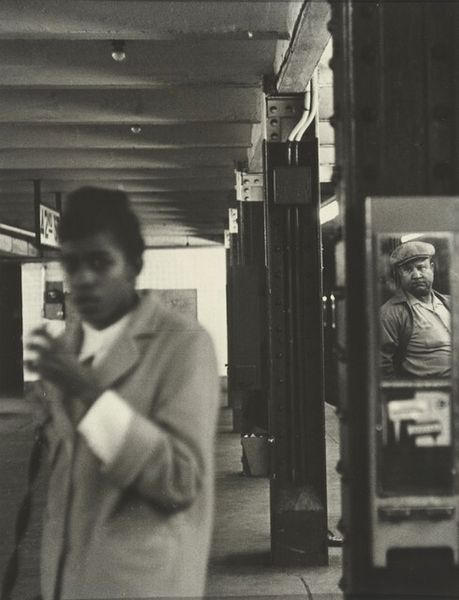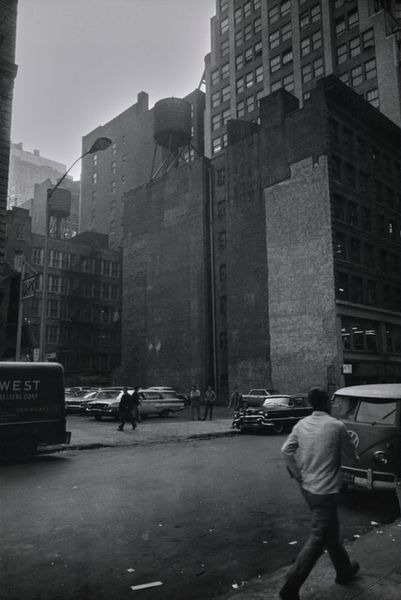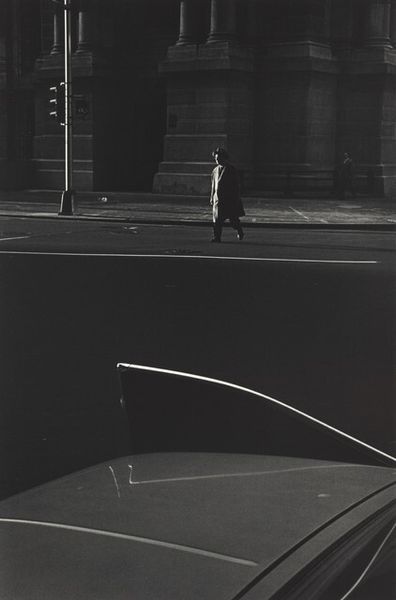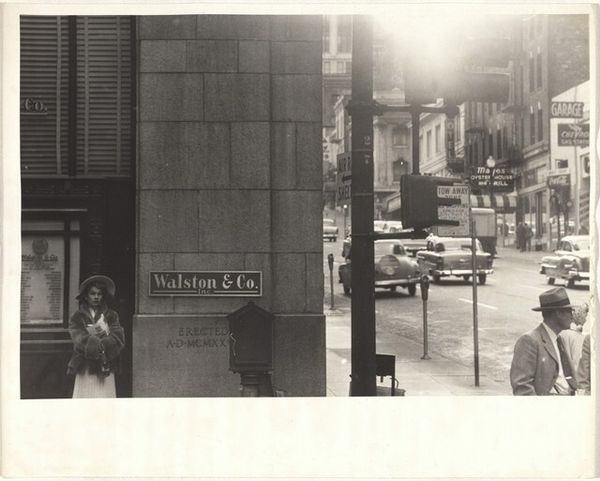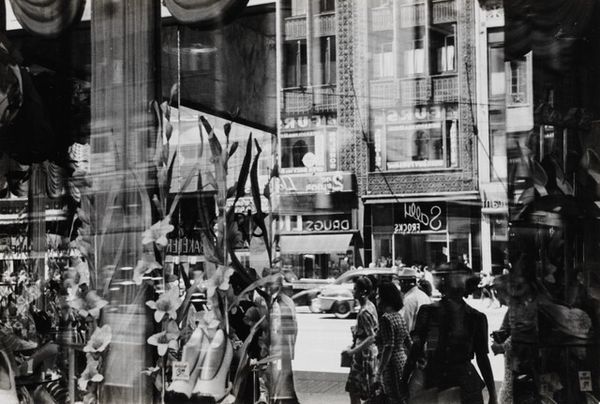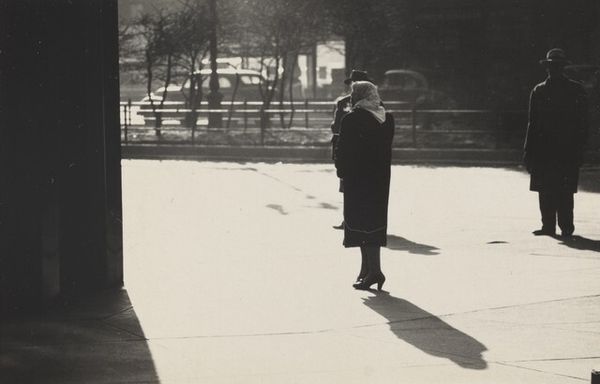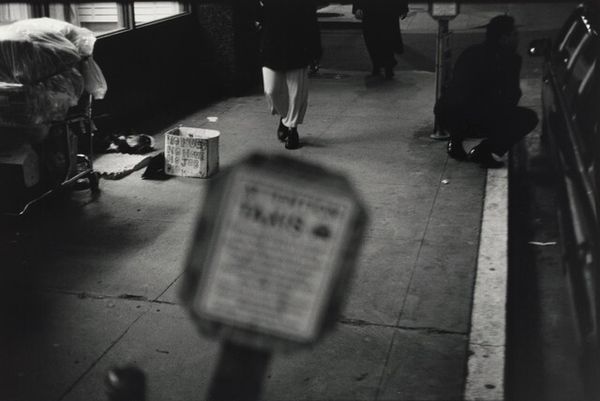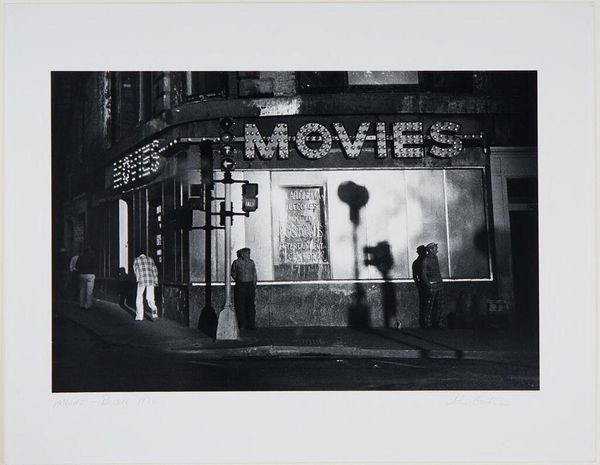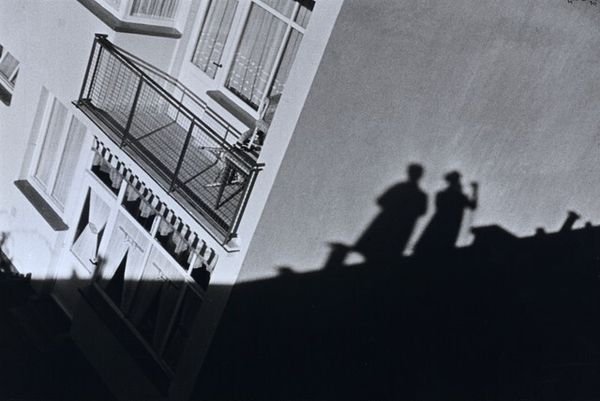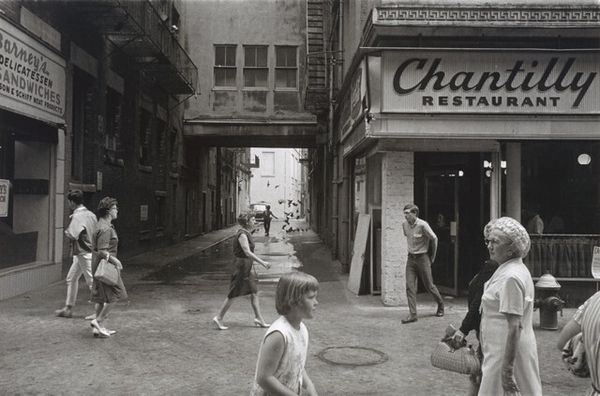
Dimensions: image: 22.4 x 34.1 cm (8 13/16 x 13 7/16 in.) sheet: 27.2 x 36.4 cm (10 11/16 x 14 5/16 in.)
Copyright: National Gallery of Art: CC0 1.0
Curator: Oh, my goodness, look at the light and shadow here. I am immediately drawn into this little drama playing out on what looks like a Venetian street corner. Editor: It's Harry Callahan’s "Venice," likely captured sometime between 1957 and 1980. His street photography has such a singular feeling. I think Callahan managed to find a story within the ordinary, as if he were capturing moments between moments, wouldn’t you say? Curator: Exactly. The story of strangers in motion. The shuttered shop almost forms a backdrop and they move along like shadow puppets and the streetlight, almost as an icon above. It speaks to isolation, or maybe contemplation within the bustling world around. There's almost a noir-ish feel to it. Editor: It's the shadows and stark geometry for me. The overhanging architectural structure that bisects the frame horizontally could even read as a type of proscenium... It makes me think about thresholds and transitions. Venice, of course, is a city built on reflections, physically and metaphorically; Callahan perhaps alludes to the mirrored experience of tourism itself. Curator: And the light, isn't it magnificent? It feels like revelation—these ordinary figures elevated by chiaroscuro to a plane that speaks of longing, love and fleeting human contact. Even with just these figures. Editor: Considering its place in photographic history, I think "Venice" captures more than just the city itself; it offers a meditation on the nature of seeing. Curator: Yes, so true. I almost feel like Callahan is asking: what is seen, what is unseen? Editor: Well, and more broadly, I'm thinking of art history traditions using symbolic garments and staging in religious iconography: there's a type of costuming happening. They each seem aware of one another's role on the street and a symbolic role beyond just people trying to reach the end of the sidewalk. It almost speaks to the rituals of modern life itself. Curator: I think that's an apt description. "Venice," for me, evokes not just a sense of place but the timeless and elusive human experience itself, just fleeting. I walk away feeling it's about capturing the very moment of existence. Editor: Precisely. And from my viewpoint, seeing Callahan capture all the theater of life, with its inherent performances—even daily tasks are embedded in a set of larger historical dramas. Each street becomes its own stage.
Comments
No comments
Be the first to comment and join the conversation on the ultimate creative platform.
